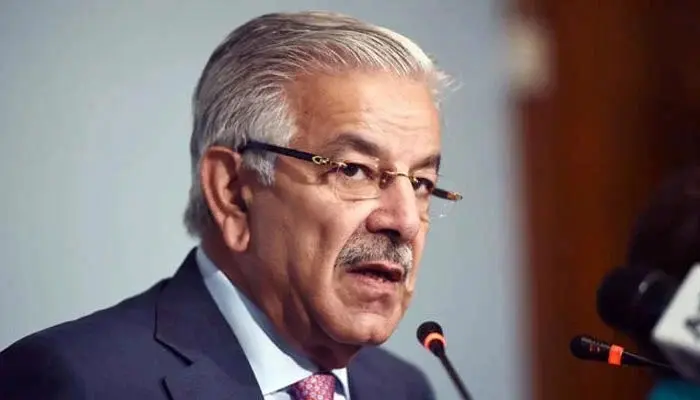ISLAMABAD – Defence Minister Khawaja Asif announced on Wednesday that Prime Minister Shehbaz Sharif will chair a National Security Committee (NSC) session on Thursday to decide Pakistan’s response to India’s provocative actions following the recent Pahalgam attack in Indian Illegally Occupied Jammu and Kashmir (IIOJK).
The attack, which left at least 26 people dead and 17 injured, has triggered a wave of retaliatory measures from New Delhi. India has suspended the Indus Waters Treaty and banned Pakistani nationals from entering its territory — decisions that Islamabad has condemned as unjustified and politically motivated.
“India Cannot Unilaterally Suspend the Treaty,” Says Asif
Speaking on Geo News’ Aaj Shahzeb Khanzada Kay Sath, Asif stressed that the Indus Waters Treaty is a multilateral agreement involving the World Bank and cannot be suspended solely by India. He warned that Pakistan is fully capable of responding if India escalates the situation, reminding viewers of the Abhinandan incident in 2019, when Pakistan captured an Indian pilot during heightened tensions.
“Pakistan is not a weak state. If provoked, we will respond just like we did during Operation Swift Retort,” he said.
Dar: “No Evidence, Only Accusations”
Deputy Prime Minister and Foreign Minister Ishaq Dar also appeared on the same program and labeled India’s actions as “inappropriate and lacking seriousness.” He stated that India has failed to present any credible evidence linking Pakistan to the Pahalgam incident.
“These moves reflect India’s frustration. Shifting blame onto Pakistan for internal failures will not help them,” Dar remarked, adding that a comprehensive NSC statement would be issued after Thursday’s meeting.
Allegations of False Flag Operation
Defence Minister Asif did not rule out the possibility of the Pahalgam attack being a false flag operation. He said Pakistan condemns terrorism everywhere but questioned India’s tendency to stage such events when political stakes are high.
“How can the most militarized zone on earth, with over 500,000 Indian troops, fail to prevent such an attack? Either this is gross incompetence or a well-planned setup,” he said.
He also accused India of backing terrorism in Pakistan, citing New Delhi’s alleged links to the banned Tehreek-e-Taliban Pakistan (TTP) and its support to Baloch insurgents. He reiterated that Indian consulates in Afghanistan had been used to promote unrest in Pakistan.
Indian Army Orchestrated Attack
Senior PML-N leader Senator Irfan Siddiqui also weighed in, calling the Pahalgam attack a “false flag operation orchestrated by the Indian army.” Speaking at a book launch in Lahore, Siddiqui said such incidents are often staged to distract from internal failures or during foreign visits.
He reminded the media that Indian occupation of Kashmir continues through violence and deceit, and Pakistani authorities have previously caught Indian spies red-handed.
A Heavily Militarized, Restive Region
Despite its tourism boom in 2024, with 3.5 million visitors, Kashmir remains volatile. Since the revocation of Article 370 in 2019, the region has been split into two federally governed territories, and heavily patrolled by Indian forces. Yet, incidents like the Pahalgam attack continue to raise questions about New Delhi’s true objectives.
The world watches closely as Islamabad prepares a calculated and assertive response to India’s provocations — a move that could redefine the already tense South Asian security landscape.
Follow us on Google News, Instagram, YouTube, Facebook, Whats App, and TikTok for latest updates
